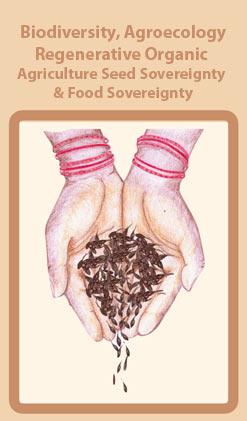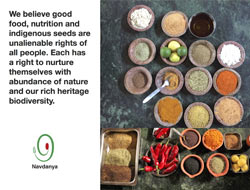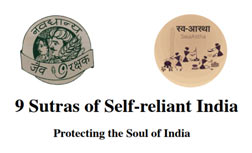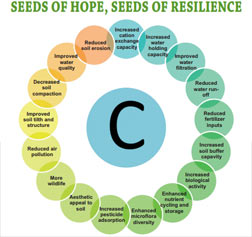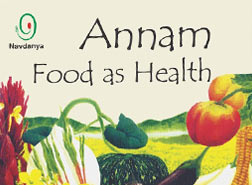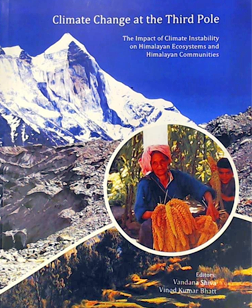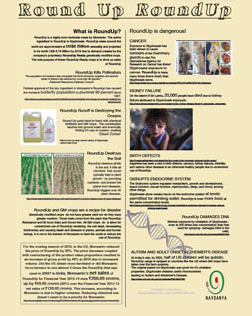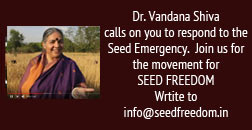Introduction:
The word “Ayurveda” roughly translates as “The Science of Long Life”.
This approach to our physical and mental well being is based on centuries old wisdom complied through extensive observation and experimentation by sages and scholars. The emphasis is on “well being”.
Ayurveda gives us a detailed understanding of how our bodies function when in good health and how they malfunction when we are feeling “unhealthy” or “ill at ease” (dis- ease). Ayurveda recognizes disease at 12 escalating levels. The principles of Ayurveda place the maximum responsibility on ourselves to maintain our own body and mind “vehicle” in good shape.
Just as the right fuel Is critical for a high performance racing car to run at optimum speed levels, so also providing our body with the right food helps to keep our health at optimum levels. Come and learn about how to drive your own inner “Ferrari” through the right diet and lifestyle guidelines based on ancient wisdom tried and true over millennia.
SUGGESTED DAY BY DAY AGENDA
Three days
Friday, Saturday 9:30 am to 5:30 pm
Sunday 9:30 am to 4 pm
Daily Agenda:
9:30 am to 10 am Greet, meet all, review day's agenda, questions.
10 am to 1 pm 3 hour interactive lecture session
Tea break at 11:30 am
Tasting ray activity
1 pm to 2:30 pm Lunch break
2:30 pm to 3 pm: Lecture, recipe discussion and group makeup
3 pm to 5 pm Hands on Cooking by 20 people in 4 groups of 5 each
Each group will cook one of 4 items i
5pm to 5:30 pm Discussion of cooking outcomes and recipe adjustments
It is suggested that the items we cook are served at dinner for everyone to taste and discuss.
(Possible to reverse the order,
Cook in the morning session, lecture in the evening session)
LECTURE TOPICS:
- Basics of Ayurveda, definitions
- The buildings blocks of the Universe; macrocosm to microcosm
- The “quality” of mind and body, characteristics and how to observe, qualify?
- Knowing your body type, understanding balance
- The causes of disease and twelve levels of disease escalation
- Timetables and rhythms of our body and the Universe around us.
- Why and how does TASTE matter.
- Food guidelines for creating and maintaining balance
- Cooking for balance!
- Spices and what they can do
- Oils and what is the best cooking medium, why?
- Understanding the role of the cooking fire, inside and outside the body.
- Simple rules for cooking and serving food that is inherently nourishing.
SUGGESTED MENUS
CLEANSING MENU
- Main dish - Kala chana khicheri with orange peel
- Vegetable – Crispy Brinjal rounds - Stir Fry Or roasted paapar
- Relish – Cooked sweet date and tomato Chutney
- Salad – Cucumber radish salad with pine nuts ( cashew nuts)
- Desert – Sandesh
Simple celebratory lunch
- Parathas plain and stuffed (alu paratha, methi paratha )
- Boondi Raita
- Simple Okra stir-fry with ajwain
- Beet and carrot thin soup
- Mint chutney Kala Chana Khichri with Orange Peel
- Ragi Halwa
EVERYDAY MENU
- JEERA RICE Tr-idoshic, cleansing, promotes digestion
- BLACK-EYED PEAS ( lobiya ) or KIDNEY beans (rajma) curry – robust, building
- Karela cooked in coconut milk ( Pitta reducing,)
- Chopped salad with jicama, cucumbers, radish and pine nuts (chilgoza).Summer salad, provides fiber, high prana, vata and pitta reducing, does not aggravate Kapha , calming
- Sweet fruit chutney (any seasonal fruit such as apple) with raisins and panch phoran spices
MENUS TO BE DISCUSSED AND ADJUSTED FOR THE SEASONAL AVAILABILITY


